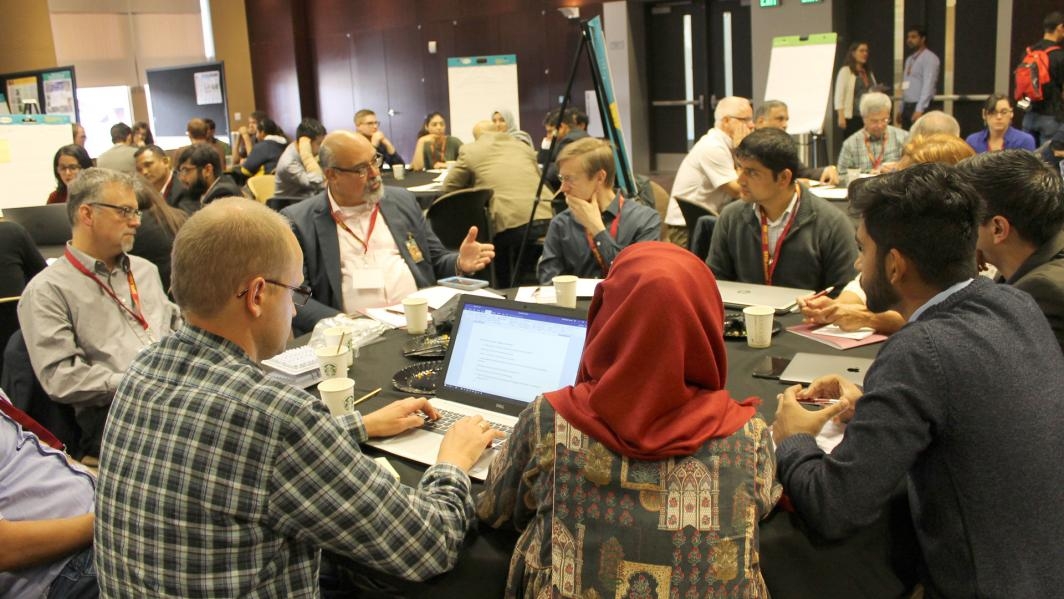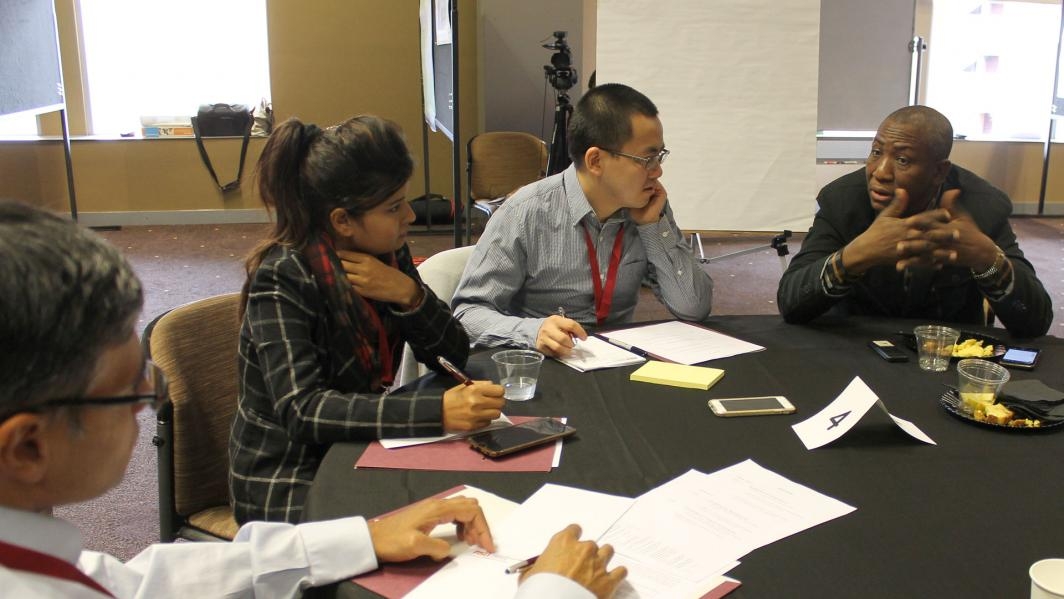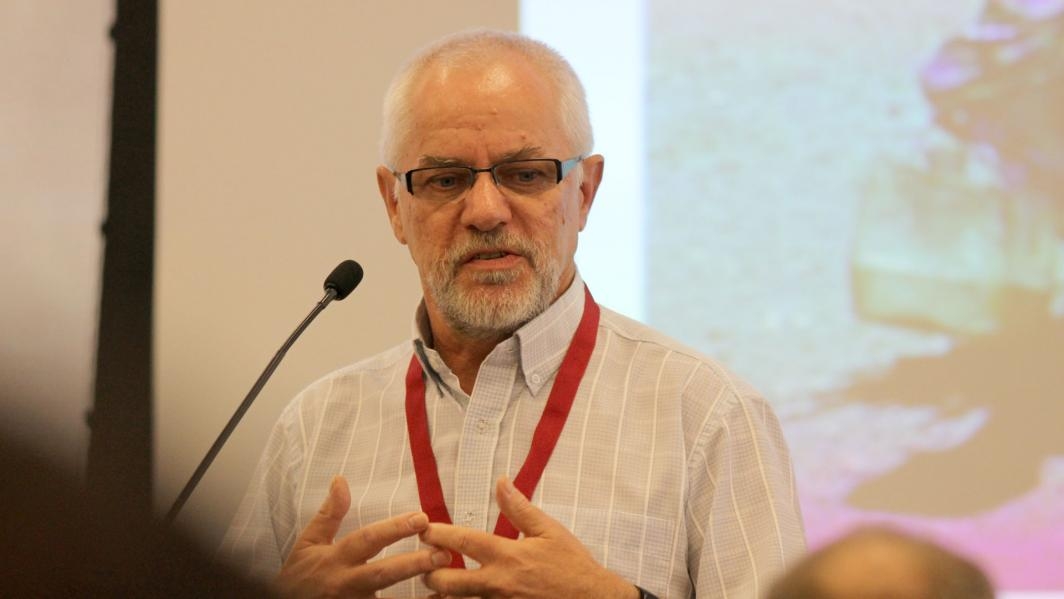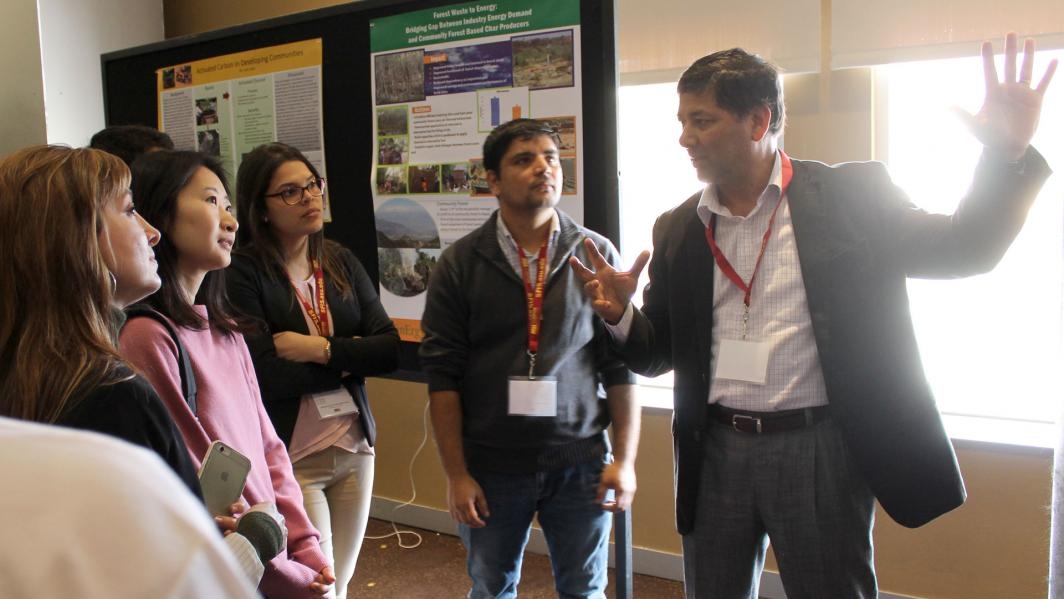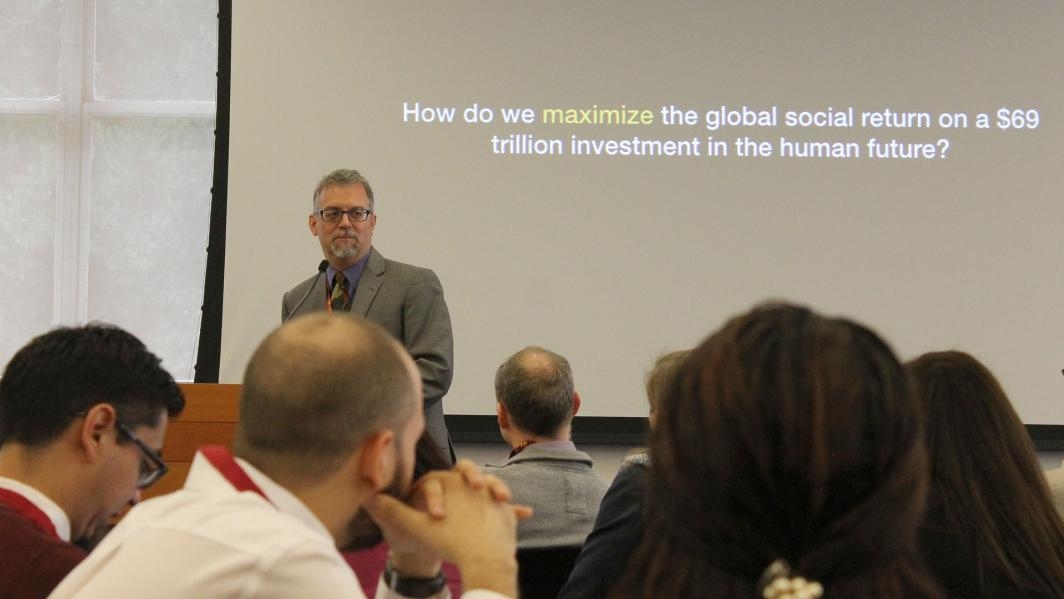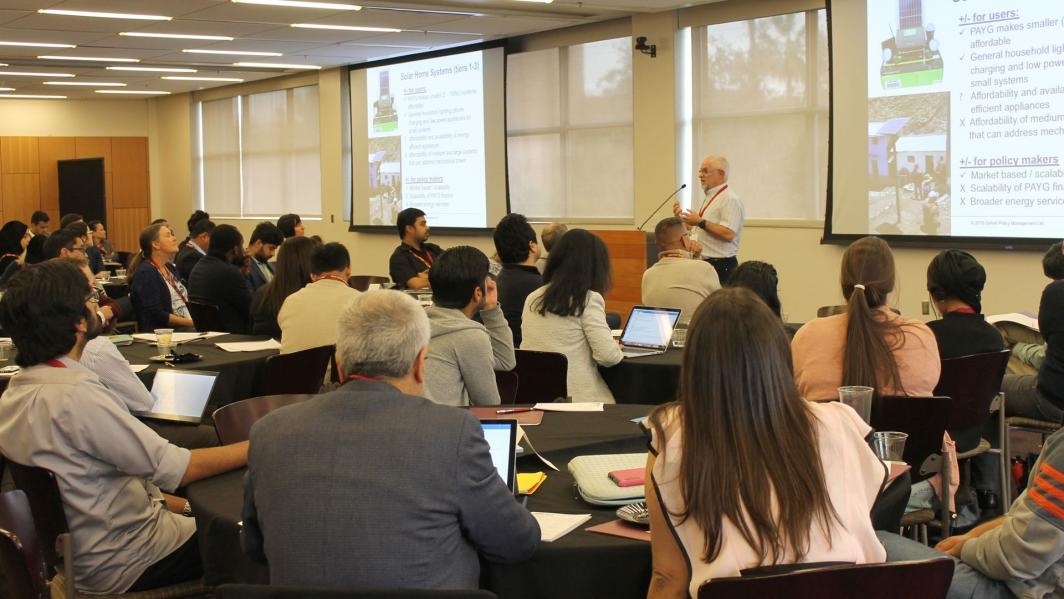Access to energy is at the nexus of many social problems, and improving the ability of people to gain access to affordable, reliable energy could help mitigate the effects of poverty and a host of related challenges, such as access to clean water, food, healthcare, adequate housing and clean environments.
As governments around the world grapple with advancing economic development while moving toward cleaner energy usage, 1.2 billion people still have minimal or no access to energy (according to the International Energy Agency).
“This is an issue of justice…It is absolutely fundamental to establishing the basic foundation of a standard of living," said Simon Trace, a principal consultant on natural resources and energy at Oxford Policy Management with extensive experience in NGOs. "This is not just the unfortunate consequence of a technical process. There are choices that are being made here.”
Trace was a keynote speaker at the the Eradicating Poverty through Energy Innovation (EPEI) conference, held Feb. 12-14 at Arizona State University, which had a goal of exploring ideas for how investments in sustainable energy can also be used to address other social needs, and ultimately eliminate poverty.
The conference host, the School for the Future of Innovation in Society, assembled participants with diverse expertise from 11 countries and five continents to share research and experiences and deliberate on strategies for creating pathways to full energy access in areas that don’t currently have electricity.
One key idea motivated the conference, noted co-organizer Clark Miller, director of ASU’s Center for Energy and Society: “Energy innovation can help end poverty in remote and rural communities if projects can deliver high levels of social and economic value for energy users."
Jim Rogers, former CEO of Duke Energy and co-founder of the Global BrightLight Foundation, observed that energy is one of the greatest contributors to human inequality. As a result, he argued, access to electricity should be viewed as a basic human right.
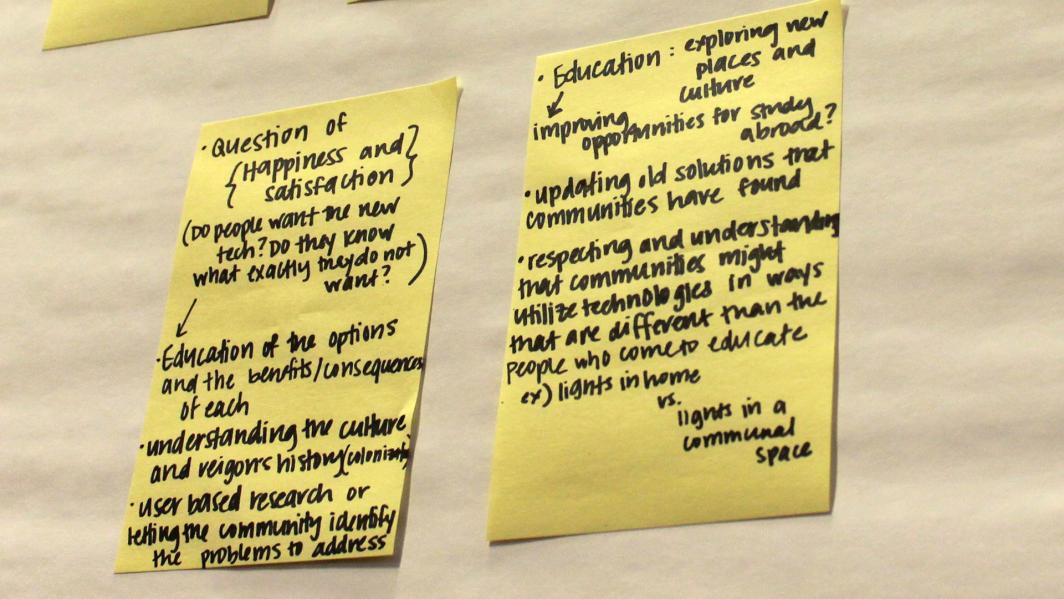
Ideas generated in breakout sessions were recorded and posted at the Eradicating Poverty through Energy Innovation conference.
Doctoral student Saurabh Biswas of the School of Sustainability helped organize the conference.
“One theme emerged to the forefront across three days, and that is the ambition of the agenda of eradicating energy poverty," he said. "There was an explicit opinion shared among 100-plus participants that the approach has been minimally ambitious so far, and it is high time that we redefine the values and principles of the global energy access initiative to be based on ideas of justice and equity.”
So what's next after a successful conference?
“Having invested several years in building relationships with institutions in Asia, it was pleasing to hear academics representing India and Nepal offer to host the next iteration of the conference," said SFIS faculty member and co-organizer Nalini Chhetri. "Their reason is that the theme of this conference focusing on the social value of energy was both timely and relevant. So holding such an event in these nations will create critical mass of stakeholders who can rethink and reimagine how energy poverty needs to be addressed.”
A number of deliverables are being developed from conference activities including video recordings of presentations. For more information or notification of postings, contact conference co-organizer and SFIS PhD student Carlo Altamirano-Allende.
Conference sponsors included ASU’s QESST photovoltaics engineering research center, the US-Pakistan Centers for Advanced Study in Energy, ASU International Development, the Partnership for Transborder Communities, LightWorks, the Global Institute of Sustainability, and the School for the Future of Innovation in Society.
Further reading: Biswas, Miller and Altamirano-Allende, are coauthors of the working paper “Poverty Eradication through Energy Innovation: A Multi-Layer Design Framework for Social Value Creation.”
More Science and technology

ASU-led space telescope is ready to fly
The Star Planet Activity Research CubeSat, or SPARCS, a small space telescope that will monitor the flares and sunspot activity…

ASU at the heart of the state's revitalized microelectronics industry
A stronger local economy, more reliable technology, and a future where our computers and devices do the impossible: that’s the…

Breakthrough copper alloy achieves unprecedented high-temperature performance
A team of researchers from Arizona State University, the U.S. Army Research Laboratory, Lehigh University and Louisiana State…



